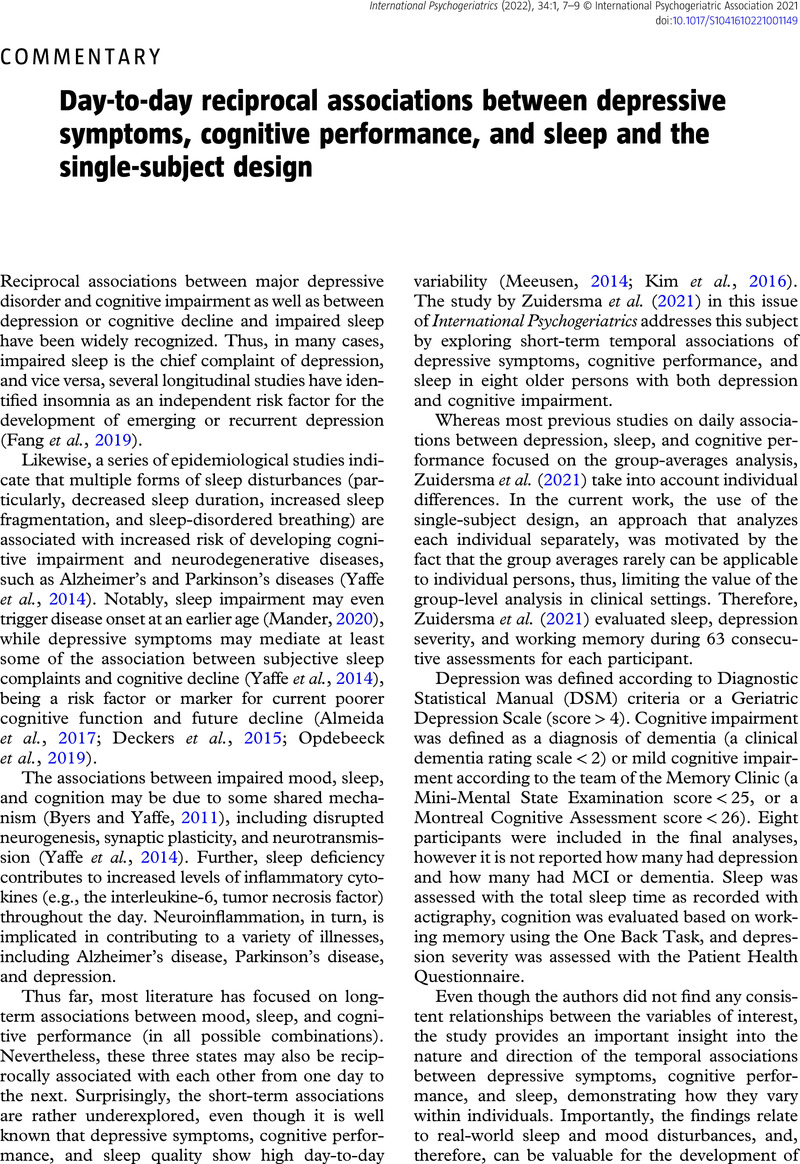Crossref Citations
This article has been cited by the following publications. This list is generated based on data provided by Crossref.
Polacsek, Meg
and
Woolford, Marta
2022.
Strategies to support older adults’ mental health during the transition into residential aged care: a qualitative study of multiple stakeholder perspectives.
BMC Geriatrics,
Vol. 22,
Issue. 1,
Quevedo-Blasco, Raúl
Díaz-Román, Amparo
and
Quevedo-Blasco, Víctor J.
2023.
Associations between Sleep, Depression, and Cognitive Performance in Adolescence.
European Journal of Investigation in Health, Psychology and Education,
Vol. 13,
Issue. 2,
p.
501.



